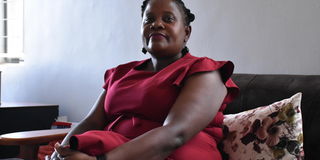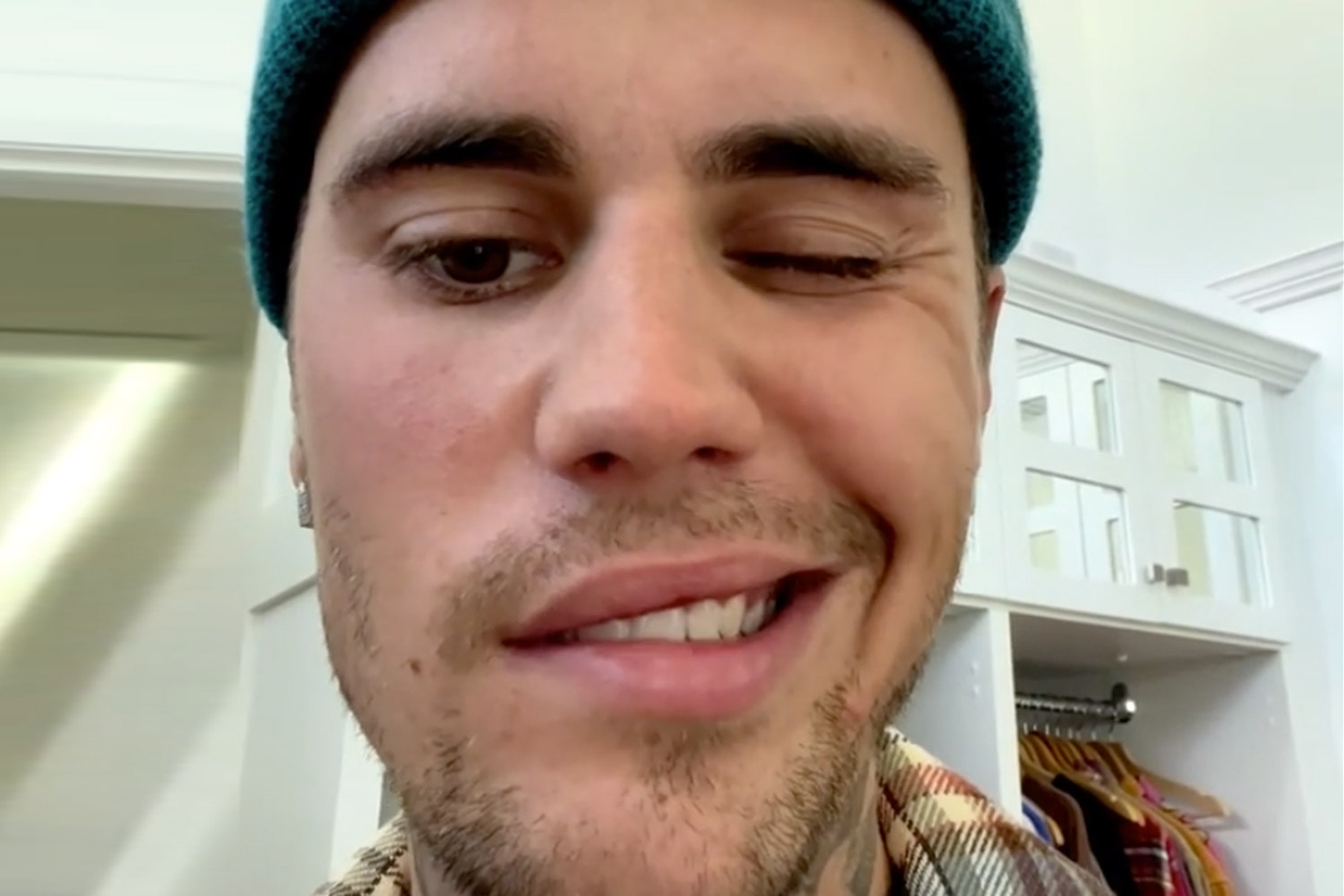Prime
What it means to raise a child with Down Syndrome- Nambooze

Rosemary Nambooze, the founder of Angel’’s Centre in Wakiso District. PHOTO/PROMISE TWINAMUKYE
What you need to know:
Rosemary Nambooze, an advocate for children with disabilities and for inclusive education, was among the six people around the world, honoured by Rotary International as People of Action and Champions of Inclusion. The international award recognises her commitment to diversity, equity and inclusion around the world. She lets us into her world of raising a child with Down syndrome, her struggles, the health complications, endless hospital visits and how she is managing. Taaka Wandera, had a chat with her and below are the excerpts.
You are among the six people globally that was honored as a person of action in championing inclusion internationally. How does that make you feel?
U ganda hardly recognises children with intellectual disabilities, and yet, they require extra support and learning materials and adaptation.
For Rotary to recognise my efforts, I am elated and I feel honoured, especially because this is increasing the visibility of the plight of children with special needs.
Access to services such as education, health care, community participation and many other services for children with special needs should be a national concern. I am happy that Rotary international, one of the biggest platforms in the world, is amplifying the voice that change the plight of children with disabilities.
What does it take for one scoop such an international recognition?
My journey of working with children with special needs started when I gave birth to our second born.
The child was diagnosed with Downward Syndrome. As a mother, I had never come across such a condition. So as I struggled to raise a special needs child, the vision bigger. I wondered how other parents with children with such conditions were managing.
And for the last 10 years, Angels Centre for children with special needs, has been advocating for the rights children with disabilities. More than 120 children have been supported. I resigned from my job, and my child became my full time job. I spend my days changing dippers, bathing him, feeding him, improving his functionality and quality of life and giving disability a human face. Some children suffer from speech delays, mobility challenges, motoric movement delays and we rehabilitate them. Improving intellectual disability, access to infrastructure, tools and the environment are some of the things we focus on.
What does it take to raise a child with special needs?
There is a lot that is untold emotional pain, a parent experiences when they have a special needs child. That pain cannot measured in words.
I saw my son as a baby, struggle on oxygen. He has been subjected to a number of surgeries including a heart operation. It was a difficult time and at some point, his sense of hearing became impaired. I resigned from my professional job because the baby needed full time attention. We spent a year and a half in hospital in Belgium.
The journey is too long but I am glad that through parenting my special needs child, we are now a community where parents can be given emotional support and we offer services that are aimed at making the lives of special needs children a quality life.
Let us talk Down syndrome. At what point did you realise your child suffered from that condition?
I did not have any signs when I was pregnant, but at birth, the medics discovered that the feautal heart beat was too low. He was then put on oxygen and many things started unfolding in a short time. We were eventually told that our son had Down syndrome. It is an intellectual disability that affects the brain functioning, but also different parts of the body are affected. Our son walked at six years. The talking stage came in much later. Down syndrome delays every stage of growth in a child with.
What does a typical day of a parent of a child with special needs look like?
When you become a parent to child with special needs, every day you wake up, you become a human right defender. Because the child is entirely dependent on you. You wake him up, you take him to the bathroom and bathe him, feed him, dress him and do literally everything for them. I am lucky because I do not have to my son. But we have to support him when he wants to use the washroom. If he wants to brush his teeth, you have to help in him do it. It does not matter how old he gets. Children with such a condition usually has other health complications. Our son was born with a heart problem, so we have to do heart reviews at least once a year. He also suffers from insomnia, breathing challenges, and we are always in and out of hospitals for checkup ups. You can imagine how a mother in a rural area manages. We have to learn that these children never chose to be that way and if you do not help them, no one will. And this has taught me to accept people the way they are and judge less. Love, patience and compassion, acceptance and humility are important virtues.
Did you enroll your child in any special needs school?
I had obtained knowledge in the field of special needs and I knew how important it was for my son to interact with other children. The first school I went to was Parenting Uganda in Bukoto, an early childhood centre for children with disabilities. He needed to learn how to socialise, see how other children were moving, so that he could be motivated to make steps. And he achieved some growth milestones. I also sought help from various hospitals since the condition comes with other complications. I have got good pediatricians, who supported us in different aspects.
Tell us about your foundation. Who does it support and who qualifies?
Angels Centre is a non- government organisation that provides services of early learning for children with special needs between the ages of two to 12 years. We advocate for early intervention through providing therapy specific to different conditions such as occupational therapy, physio therapy, speech therapy, as part of rehabilitation. We also do community outreaches; we go to homes and train parents on how best to look after these children. We support families with adaptation skills, training them on how to feed and provide basic therapy.

Special needs children with their trainers at Angel’’s Centre in Wakiso District. PHOTO/ COURTESY
Once the child is 12 years, the next step is signing up for vocational training. The challenges is that we do not have vocational training centres for children with intellectual disabilities. So, the proceeds from the book launch will be used to establishof a vocational block for special needs children. We have land already. If these children learn how to weave, make shoes, or tailor, we can promote and sell their products, to enable them to earn a living. What we wish for them is to have a certain level of independence.
What does inclusive education mean then?
With inclusive education, a child does not have to wait until they are 12 years. As long as they achieve the development milestones, but while they are in those main stream schools, we do not give up on them. But because most teachers do not have the skills to teach the rest of the class, alongside a child with special needs, they cannot compete with others. Children learn a lot from these children with the intellectual disabilities and they tell their parents, which creates awareness. So inclusive education entails preparing the special needs children, to join the main stream schools. There children they bring here 15 years old but they have never been to a rehabilitation center, they have been in a home hidden, for fear of judgement and opinions from society.
If you had to speak to key decision-makers/ government what can be done to ease the life of children with disabilities in Uganda?
While conventions have been signed, I want to see government fast-tracking efforts to have these policies implemented and follow up for quality assurance. Disabled children are killed in homes, by care givers. Some care givers give up on the child and in most cases, when the child is born with a disability, the father runs away and the mother is abandoned with the child, leaving the stress and the burden of care to the mother. Special needs children need to be protected in our communities and education facilities, hospitals, services for these children need to be put in place.
For most families, especially in rural areas, Down syndrome and other child disabilities are associated witchcraft. Some fathers desert their families when a child is born with a disability. What are you doing to address this?
One of the things I have done is to document information for people to get right information about Down syndrome. I want parents to know that Down syndrome is not witchcraft. We have a network of 86 parents and in this community, we share information, seek advice from medical personnel to share information on the best way of raising these children. Every year, we celebrate, world Down syndrome day, World Cerebral Palsy day, world autism day and all these intellectual disabilities, during which information is shared. On the day of the African child, we also bring in children with special kids, because they are African children, they are our children, so we include them. So those are the advocacy efforts aimed at dealing with some of these miss conceptions.
What milestones has your son achieved so far?
Abryl Niwagaba is now 12 years old and his speech has developed tremendously as well as his physical mobility. He can bathe with some assistance, wash plates, dress up himself and wear shoes. He feeds himself too. He is well toilet trained, even at night he does not wet the bed. He can also clean the compound with supervision
If you had to talk to a parent with a child with Down syndrome, what would you say to them?
The journey is walkable. All you need is a positive attitude, resilience and a psychosocial support system. With the right information, resources and support your parenting journey will be eased.
I am aware that you have authored a book on Down syndrome. Briefly tell us about it.
The book is going to be my first publication and it is titled Abryl: Born with Down syndrome, a journey of Significance. I have called it a journey of significance, because through his birth, a lot has happened and changed our life. His life has made grow in immeasurable ways and we are using his story to reach out to many children with intellectual disabilities and their families. The book narrates the depth of untold stories of care givers of special needs children, their day-to-day struggles and the challenges families’ experience. This book speaks to a mother out there who has given birth to a child with special needs, Uganda’s perspective on disability, the stigma, health challenges, the rate at which children with Down syndrome die, among other things. The book will be launched in March this year.
What does the future hold?
Like, I had mentioned earlier, we want to build a vocational block to equip children above 12 years with skills. We also to create working opportunities for adults with Down syndrome. There is a lot of need in communities in terms of livelihood, in terms of safety and protection of children with disabilities and we still need partners and funding to support in the inclusive education and community-based rehabilitation.




